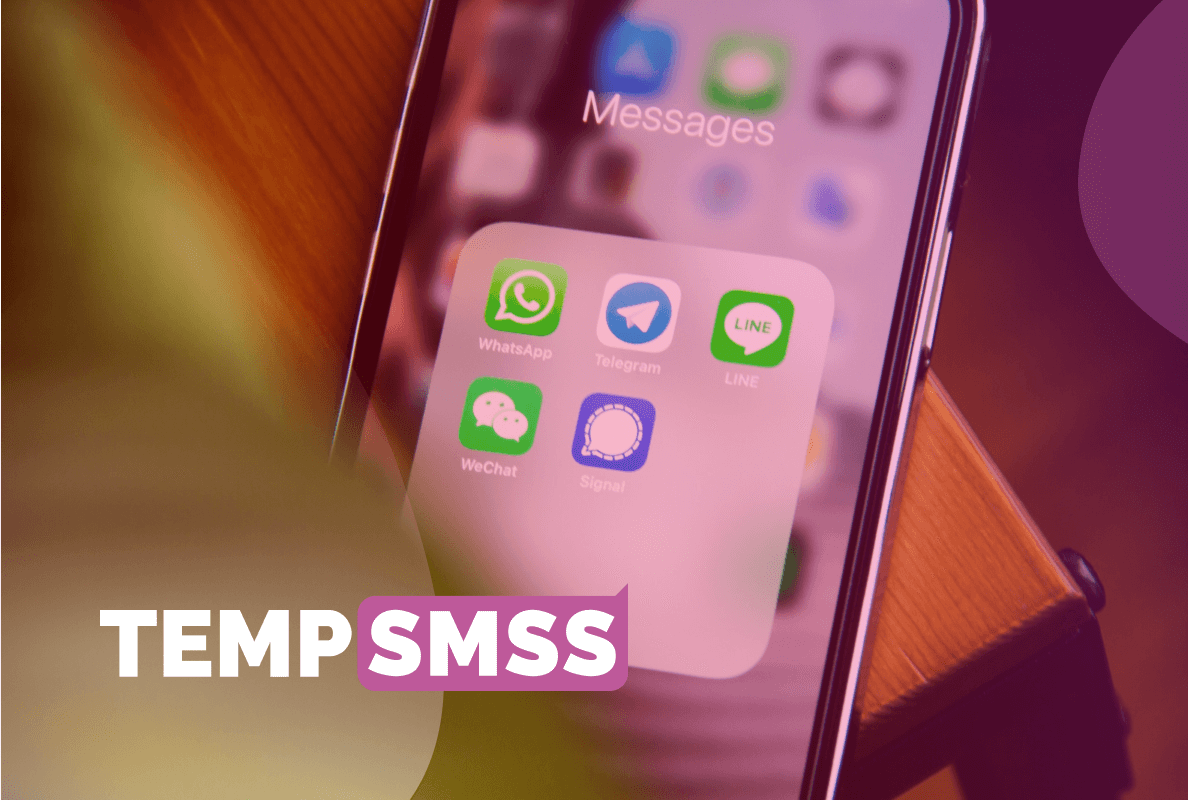Introduction
Online security is crucial today. OTPs are a key part of this security. Phone number temp services offer a new way to receive OTPs. They enhance security and privacy. This article explores virtual numbers in depth. We’ll look at how they work and why they’re gaining popularity.
Quick Answer: Virtual numbers are temporary phone numbers. They can receive SMS messages, including OTPs. No physical SIM card or device is needed. They offer better privacy and security. Many users find them convenient for online account verification.
What are virtual numbers?
Virtual numbers are online phone numbers. They don’t need a physical phone line or SIM card. These numbers exist in the cloud. Service providers manage them via the internet. Think of them as digital aliases for your real number.
Temp numbers can receive SMS messages. This includes OTP codes. You don’t need a separate device to use them. You can access messages through an app or website.
How do virtual numbers work for receiving OTP codes?
Using a temp phone number for verification is simple:
- Sign up for a virtual number service.
- Get assigned a number.
- Use this number for website or app verification.
- The service sends the OTP to your virtual number.
- Access the code via the service’s app or website.
- Enter the code to complete verification.
Virtual number providers use VoIP technology. This routes SMS messages to their servers. You can then access these messages through their platform. Your personal number stays private.
Why are virtual numbers becoming popular for online verification?
Several factors drive the popularity of free temporary number services:
- Privacy concerns: Data breaches are common. People want to protect personal info.
- Spam prevention: Virtual numbers reduce unwanted calls and messages.
- Convenience: Manage multiple accounts with one device.
- Global access: Use numbers from different countries easily.
- Enhanced security: Add a layer between online activities and personal identity.
What are the benefits of using virtual numbers for OTP?
Virtual numbers offer several advantages for OTP verification:
| Benefit | Description |
|---|---|
| Better Privacy | Protect your real number from data breaches. |
| Less Spam | Reduce unwanted calls and messages. |
| More Flexible | Manage multiple accounts easily. |
| Global Access | Use numbers from various countries. |
| Temporary Use | Great for short-term needs or testing. |
Are there any risks or drawbacks to using virtual numbers?
Virtual numbers have some potential drawbacks:
- Service reliability: You depend on the provider’s uptime.
- Account recovery: Some services may not allow recovery with virtual numbers.
- Legal issues: Some places restrict virtual number use.
- Cost: Premium features often have a price.
- Trust concerns: Some platforms may flag virtual numbers as suspicious.
How do you obtain a virtual number?
Getting a free temporary phone number is usually easy:
- Choose a reputable provider.
- Sign up for an account.
- Pick a number from their options.
- Select a suitable plan.
- Download their app or save their website.
After setup, you can start using your virtual number right away.
Which services offer virtual numbers for OTP?
Several providers offer virtual number services:
- Google Voice: Free US numbers. Limited SMS support.
- Twilio: Programmable voice and SMS platform.
- Hushed: Temporary numbers for various countries.
- Burner: Disposable numbers for US and Canada.
- TextNow: Free US and Canada numbers with ads.
- TempSMSS: Provides temporary SMS services.
Research each option to find the best fit for you.
Can virtual numbers be used for other purposes besides OTP?
Yes! Virtual numbers are versatile tools:
- Business: Use a professional number without a dedicated line.
- Travel: Keep a local presence in different countries.
- Online dating: Protect privacy when meeting new people.
- Ads: Avoid sharing your personal number publicly.
- App testing: Use multiple numbers to test SMS features.
- Projects: Set up temporary contact numbers.
Are virtual numbers legal and compliant with online service policies?
The legality of virtual numbers can be complex:
- Legal status: Most countries allow virtual numbers. Some have restrictions.
- Service policies: Some platforms forbid virtual numbers. Check terms of service.
- KYC regulations: Some services require non-virtual numbers for compliance.
- Emergency services: Virtual numbers usually can’t call emergency services.
Use virtual numbers responsibly. Follow legal requirements and service policies.
How do virtual numbers compare to traditional phone numbers for OTP?
Let’s compare virtual and traditional numbers:
| Feature | Virtual Numbers | Traditional Numbers |
|---|---|---|
| Privacy | High (can be disposable) | Lower (tied to identity) |
| Convenience | Access via app/web | Requires physical device |
| Cost | Varies | Part of phone plan |
| Reliability | Depends on internet | Generally more reliable |
| Acceptance | Not always accepted | Widely accepted |
What security measures should you consider when using virtual numbers?
Implement these security measures with virtual numbers:
- Strong passwords: Use unique, complex passwords.
- Two-factor auth: Add extra security to your account.
- Monitor activity: Check for unauthorized use.
- Choose reputable providers: Look for good security practices.
- Limit personal info: Avoid linking to sensitive accounts.
- Keep software updated: Always use the latest version.
How might virtual numbers evolve in the future?
The future of virtual numbers looks promising:
- Better integration: Work seamlessly with more apps.
- Smarter AI filtering: Improved spam detection.
- Blockchain use: Enhanced security through decentralization.
- Biometric auth: Added security for accessing services.
- Wider global coverage: More country options available.
- IoT integration: Help manage and authenticate IoT devices.
Conclusion
Virtual numbers are powerful for receiving OTPs. They offer privacy, convenience, and flexibility. They have some limitations. But their benefits make them attractive to many users. As technology advances, virtual numbers will likely improve. They may become even more widely used.
Virtual numbers can protect your privacy. They help manage multiple accounts. They open new communication options. Understanding their capabilities is key. Know their limitations and best practices. This knowledge helps you make informed decisions about using virtual numbers.
FAQ
- Q: Can I port my existing number to a virtual service?
A: It depends on the provider. Some allow porting. Others only offer new numbers. - Q: Are virtual numbers traceable?
A: They offer more privacy than traditional numbers. But they’re not completely untraceable. Law enforcement can request information. - Q: Can I use a virtual number for WhatsApp?
A: Some services work with messaging apps. Compatibility varies. Check with your provider. - Q: How long can I keep a virtual number?
A: It varies by provider. Some offer temporary numbers. Others let you keep numbers as long as you subscribe. - Q: Can I receive voice calls on a virtual number?
A: Many services support both SMS and voice calls. This feature may cost extra.
Key Takeaways
- Virtual numbers enhance privacy and security for OTPs.
- They offer flexibility in managing multiple online accounts.
- Costs vary from free to premium plans.
- Consider legal and policy compliance when using virtual numbers.
- Implement additional security measures for best results.
- The future of virtual numbers looks promising with potential tech advancements.
For those looking for a reliable service, USA temp number options are available from providers like TempSMSS. These services offer a great way to get free SMS online for various verification needs.




